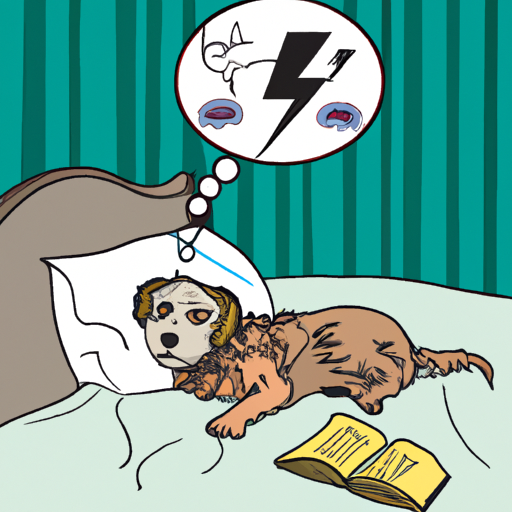Understanding Seizures in Older Dogs
Seizures in older dogs are unfortunately a common occurrence. They can be distressing for both you and your furry friend. It’s important to understand that seizures are not a disease but rather a symptom of an underlying condition. What’s happening is an abnormal and intense burst of electrical activity in your dog’s brain. This sudden surge can cause changes in your dog’s behavior, movements, or consciousness.
Common Causes of Seizures
There are several potential causes of seizures in older dogs. Here are some of the most common:
- Idiopathic Epilepsy: This is a genetic condition that often affects dogs between 1 and 6 years old, but can also occur in older dogs.
- Brain Tumors: Brain tumors are more common in older dogs and can lead to seizures.
- Liver Disease: The liver helps to filter toxins out of the body. If the liver isn’t working properly, toxins can build up and cause seizures.
- Kidney Disease: Like the liver, the kidneys also help to filter out toxins. If the kidneys are failing, toxins can build up and cause seizures.
- Stroke: Strokes are more common in older dogs and can lead to seizures.
Recognizing the Signs
Recognizing the signs of a seizure in your dog is crucial. Here are some common signs:
- Sudden uncontrollable shaking
- Loss of consciousness
- Foaming at the mouth
- Paddling of legs
- Urinating or defecating involuntarily
How to Help Your Dog During a Seizure
If your dog is having a seizure, it’s important to stay calm and keep your dog safe. Here are some steps to take:
- Move Objects Away: Clear the area around your dog to prevent them from hurting themselves.
- Track the Time: Note the start and end time of the seizure. This will be helpful information for the vet.
- Do not Restrain: Never attempt to hold or restrain your dog during a seizure.
- Keep Away from Water: Make sure your dog is not near any body of water to prevent drowning.
Treatment Options
Treatment options for seizures in older dogs depend on the underlying cause.
| Underlying Cause | Treatment |
|---|---|
| Idiopathic Epilepsy | Anti-seizure medication |
| Brain Tumors | Surgery, radiation, chemotherapy |
| Liver Disease | Medication, diet change |
| Kidney Disease | Medication, diet change |
| Stroke | Physical therapy, medication |
Frequently Asked Questions
Q: Are seizures painful for dogs?
A: While seizures can be scary to witness, they are not generally painful for dogs.
Q: Can a dog recover from a seizure?
A: Yes, most dogs recover from seizures. However, it’s important to seek veterinary care to address the underlying cause.
Q: Are certain breeds more prone to seizures?
A: Yes, certain breeds like Beagles, German Shepherds, and Belgian Tervurens are more prone to seizures.
Remember, when it comes to your dog’s health, you’re their best advocate. Stay informed, stay vigilant, and always seek professional help when needed.



